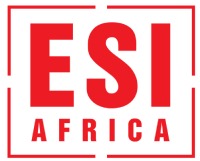G20 leaders champion nuclear energy for global decarbonisation
The G20 Nuclear Energy Collaboration Meeting solidified nuclear energy’s role as a cornerstone of global decarbonisation
Global ministers of energy underscored the critical role of nuclear energy in achieving decarbonisation and energy security.
At the G20 Presidential side event – the Nuclear Energy Collaboration Meeting hosted by the South African Department of Energy and Electricity and the International Atomic Energy Agency (IAEA), in Durban, South Africa.
Representatives from the United States, Argentina, France, Italy, Russia, the United Kingdom, the Netherlands, Singapore and the United Arab Emirates outlined ambitious plans to
- expand nuclear capacity,
- innovate with small modular reactors (SMRs), and
- foster international cooperation
to meet rising global energy demands sustainably.
The various country representatives spoke about the nuclear technology initiatives their countries are working on.
US, Argentina, France and Italy
The US delegation announced a bold push to revitalise its nuclear sector, spotlighting four executive orders issued by President Trump in May to modernise regulations, streamline reactor testing and strengthen the nuclear industrial base. Aiming to add 100GW of baseload power within five years, the US plans to break ground on 10 new nuclear plants during the President’s second term.
A pilot programme advancing 11 next-generation reactor projects was highlighted as a step toward reclaiming US leadership in nuclear technology. The delegation urged international financial institutions, such as the World Bank, to fund nuclear projects in developing nations, criticising past over-regulation that has stifled progress.
Argentina, with over 50 years of nuclear experience, emphasised its role as one of 12 countries mastering the entire nuclear fuel cycle. The nation, a global provider of nuclear engineering services, expressed readiness to share its expertise, particularly with African countries, to extend the life of nuclear plants and support clean energy transitions.
France, where nuclear power accounts for 65% of the energy mix, committed to building six new reactors by 2026 and investing in SMRs. The delegation stressed nuclear’s importance for energy security amid geopolitical tensions, advocating for global collaboration in financing, research and workforce development to reduce reliance on fossil fuels.
Have you read? First ever G20 Nuclear Ministerial Conference kicks off in Durban
Italy highlighted its 2023 National Platform for Sustainable Nuclear and its leadership in launching the 2024 World Fusion Energy Group in Rome. The country is crafting legislative frameworks to promote safe nuclear energy, including SMRs and advanced modular reactors, aligning with its sustainable energy goals.
Russia, UK and the Netherlands
Russia outlined an ambitious plan to construct 38 nuclear power units by 2045, aiming to increase nuclear’s share to 25% of its energy mix. The delegation emphasised nuclear’s low-carbon reliability and pledged to support global nuclear development through financial solutions and expertise in areas like nuclear medicine and digital systems, while adhering to IAEA safety standards.
The UK announced its largest nuclear development programme in 50 years, including new plants and SMR investments, alongside efforts to secure a resilient nuclear fuel supply chain. Building on a successful UK-US nuclear dialogue in Kenya, a second dialogue is planned for December in South Africa to support Africa’s nuclear energy future.
The Netherlands is advancing legislation to extend the operation of existing nuclear plants and construct four new ones. The country supports global efforts to diversify nuclear fuel supply chains while adhering to IAEA safeguards, reinforcing nuclear’s role in combating climate change.
Of interest Nuclear energy: Progress at El-Dabaa, Koeberg power plants
Singapore and the UAE
Singapore, through its Nuclear Research and Safety Institute, is studying nuclear energy deployment and actively participates in IAEA safety committees and the ASEAN Network of Regulatory Bodies. The nation emphasised upholding the highest safety and security standards.
The UAE highlighted its Baraka nuclear power plant, which supplies 25% of its electricity, as a model of international collaboration. The country is exploring SMRs and micro reactors to meet growing demand and is eager to share operational expertise with nations new to nuclear energy.
IAEA and IEA highlight role of nuclear energy
The IAEA emphasised nuclear’s importance in meeting rising electricity demand, with SMRs offering innovative solutions. The International Energy Agency reported that 63 reactors are under construction globally, adding over 65GW of capacity, with more than 60 reactors receiving lifetime extensions.
The IEA supports repurposing fossil fuel plants with SMRs to transition to low-carbon systems.
The meeting concluded with a unified call for action to advance nuclear energy through international cooperation. Leaders committed to operating existing nuclear fleets with the highest safety standards, launching new reactor programmes by 2026 and supporting innovation in SMRs and advanced technologies.
They pledged to develop favorable legislative frameworks, assist Southeast Asia’s nuclear capabilities through ASEAN and IAEA platforms, partner with new and established nuclear nations to share expertise, and convene a UK-US nuclear dialogue in South Africa in December to strengthen resilient nuclear supply chains, particularly for Africa’s energy future.
The G20 Nuclear Energy Collaboration Meeting solidified nuclear energy’s role as a cornerstone of global decarbonisation, with nations pledging to innovate, collaborate and uphold safety to meet the world’s growing energy needs sustainably.
Cover photo Delegates to the G20 Nuclear Ministerial Conference in Durban, SA. Source: Supplied.



